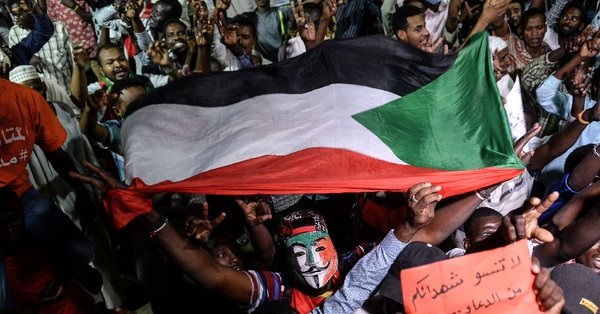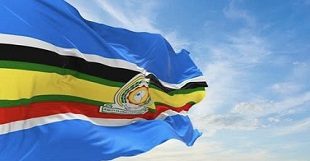
Khartoum, Sudan | AFP | Hundreds of workers at Sudan’s banks and government offices, including the key oil ministry, went on strike for a second day Wednesday to demand the country’s ruling generals step down.
The two-day strike, which one protest leader said was “90 percent successful”, aimed to pressure the military council that took power after ousting longtime president Omar al-Bashir in April to hand over to civilian rule.
The Alliance for Freedom and Change protest movement called the strike after the suspension of talks over the shape of a transitional authority.
“The strike was successful,” protest leader Ahmed Ismail told reporters late on Wednesday, adding that all the sectors that announced they would participate took part in the two-day campaign.
“According to our assessment it was 90 percent succesful.”
Another protest leader Babikir Faisal said that since the talks were suspended last week, there had been “no breakthrough” in negotiations with the generals.
“There is no official communication with the military council.”
Protest leaders warned that if the generals did not respond to their demands, further escalatory measures like launching civil disobedience would be planned.
Protest leader Mohamed Hassan al-Mahdi said that the protest movement has called on Thursday for a “million-strong march” heading to the sit-in in central Khartoum where thousands of demonstrators remained camped, demanding civilian rule.
Thousands of employees of government offices, banks, private sector firms and the docks of Port Sudan observed the two-day strike, saying only civilian rule can lift Sudan out of its political crisis.
On Wednesday, the capital’s airport began to return to normal after scores of staff had stopped work on Tuesday, although the flights of Sudanese airlines Badr, Tarco and Nova remained suspended.
But outside the central bank headquarters in downtown Khartoum, hundreds of employees along with workers from other banks, the oil ministry and telecommunications sector held a demonstration against the military council, an AFP correspondent said.
Carrying Sudanese flags, banners and placards reading “civilian rule”, they chanted slogans against the generals.
– ‘We reject the military’ –
The demonstrators said they were striking and protesting after a group of soldiers reportedly attacked bank employees on Tuesday.
“We are here to say that we reject the military government and what happened to central bank employees,” said protester Somaya Osman, an employee of telecoms company Zain.
“It’s unacceptable… that’s why we want a civilian government.”
Around her, fellow protesters chanted “freedom, peace, justice!” — the rallying cry of the protests that began in December over a hike in bread prices and escalated into a nationwide movement against Bashir.
Late Tuesday, the Sudanese Professionals Association, the group that launched the protests initially in December, said troops had tried to force central bank staff to work.
Another protester, Rihab al-Rashid, said a civilian government was the only way to develop Sudan.
“We respect the army in its mission in protecting the country,” she said.
“It has its own place in the government but civilian rule is the only way to provide education and health” to people, Rashid added.
Hundreds of people also gathered outside the University of El-Fasher in the state of North Darfur in support of the strike on Wednesday, witnesses said.
– ‘Unable to travel’ –
At Khartoum’s main bus terminal, stranded passengers were looking for private transport as bus company staff remained on strike.
“This is the second day I came to the bus terminal with my family and I’m still unable to travel,” said Mohamed al-Amin, who was trying to reach the eastern state of Kassala.
“Now I’m trying to hire a car with some other passengers.”
Several newspapers were unable to publish because their printers had shut for the day.
“My newspaper is not on strike but we were unable to print the edition because the technicians were on strike,” the owner of Al-Mjher newspaper, Al-Hindi Ezzeddine, wrote on Twitter.
The army ousted Bashir after months of protests against his autocratic rule, including a sit-in by tens of thousands outside military headquarters.
Thousands of protesters have remained camped outside the sprawling Khartoum compound for weeks.
But the generals, backed by key Arab powers, have resisted calls from African and Western governments to step down.
Before suspending talks last week, the two sides had agreed on many aspects of the political transition, including its duration and the bodies to oversee it.
But negotiations broke down over the question of whether a planned transitional body would be headed by a civilian or military figure.
 The Independent Uganda: You get the Truth we Pay the Price
The Independent Uganda: You get the Truth we Pay the Price


